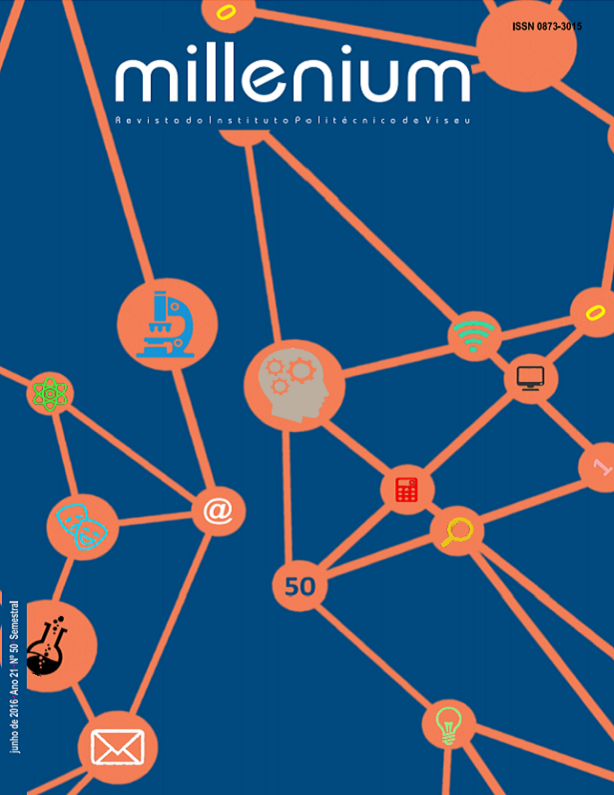Dialogical as a methodological transdisciplinary principle in research in education
Keywords:
transdisciplinarity, method in the social sciences, research in educationAbstract
This paper presents the dialogue as of transdisciplinary research perspective. We start presenting the route followed by Mikhail Bakhtin, Paulo Freire, Edgar Morin and Basarab Nicolescu to work dialogical methodology in their works. Further, it discusses the transdisciplinarity understood in its methodological aspect, as a process that occurs in three simultaneous steps: analysis of different levels of reality, the logic of the included and complexity. We sought, through literature, raise theoretical points on the dialogism and research transdisciplinary between the above authors. In dialogic is not rejected any arrow of knowledge, the process of disciplinary knowledge, multidisciplinary, interdisciplinary part of unity in diversity that makes up the transdisciplinarity. In this perspective, Nicolescu (2000) says there is no overcoming a previous level of knowledge, but that opposites coexist and that therefore the retroactive principle and self-regulatory occur simultaneously. So it is an important methodological approach to the social sciences.Downloads
References
• Bakhtin, M. Volochinov (2006). Marxismo e filosofia da linguagem. (12.ª ed.). São Paulo: Hucitec.
• Brait, B. (Org.) (2006). Bakhtin: outros conceitos-chave. São Paulo: Contexto.
• Brito, R. Mendonça (2002). Uma percepção do problema epistemológico da complexidade em Edgard Morin. In: Amazônida, 1, pp. 11-26. Manaus.
• Freire, Paulo (2005). Pedagogia do oprimido. Rio de janeiro: Paz e terra.
• Freire, Paulo (2009). Educação como prática da liberdade. Rio de Janeiro: Paz e terra.
• Husserl, Edmund (1988). Investigações lógicas: sexta investigação – elementos de uma elucidação fenomenológica do conhecimento. São Paulo: Nova Cultural. (Col. Os Pensadores).
• Lupasco, Stéphane (1960). Les trois matiéres. Paris: Julliard.
• Morin, E. (2005). Introdução ao Pensamento Complexo. Tradução do francês: Eliane Lisboa - Porto Alegre: Ed. Sulina.
• Morin, Edgar (2003). A cabeça bem-feita: repensar a reforma, reformar o pensamento. (8ª ed.). Tradução Eloá Jacobina. Rio de Janeiro: Bertrand Brasil.
• Morin, E. (2002a). Os Sete Saberes Necessários à Educação do Futuro. São Paulo: Ed. Cortez.
• Morin, E. (2002b). O Método 5: a humanidade da humanidade. Trad. de Juremir Machado da Silva. Porto Alegre: Sulina.
• Morin, E. (1996). Epistemologia da complexidade. In: Novos Paradigmas, Cultura e Subjetividade. Trad. de Jussara Haubert Rodrigues. Porto Alegre: Artes Médicas.
• Mussalim, Fernanda (2001). Análise do Discurso. Introdução à Linguística: domínios e fronteiras. Vol. 2. São Paulo: Cortez.
• Nicolescu, B. (2005). O manifesto da transdisciplinaridade. (3ª ed.). São Paulo: Triom. Disponível em: <http://www.ruipaz.pro.br/textos/manifesto.pdf>. Acesso em Julho de 2014.
• Nicolescu (2002). Fundamentos Metodológicos para o Estudo Transcultural e Transreligioso. Conferência proferida no II Encontro Catalisador do CETRANS da Escola do Futuro da USP, realizado no Guarujá, São Paulo, de 8 a 11 de junho de 2000. In CETRANS (Coord.). Educação e transdisciplinaridade II. São Paulo: Triom. Disponível em <http://unesdoc.unesco.org/images/0012/001297/129707por.pdf>. Acesso em Julho de 2014.
• Nicolescu, B. (2001). Contradição, lógica do terceiro incluído e níveis de Realidade. São Paulo: CETRANS. Disponível em <http://cetrans.com.br/textos/contradicao-logica-do-terceiro-incluido-e-niveis-de-realidade.pdf>. Acesso em Julho de 2014.
• Nicolescu, B. (2000). Um novo tipo de conhecimento: Transdisciplinaridade. In: CETRANS – Centro de Educação Transdisciplinar. Educação e transdisciplinaridade. CETRANS, São Paulo: Triom. Textos do 1º Encontro Catalisador do CETRANS - Escola do Futuro, realizado na Universidade de São Paulo, em abril de 1999. Disponível em <http://unesdoc.unesco.org/images/0012/001275/127511por.pdf>. Acesso em Julho de 2014.
• Ortega, L. P. & Gasparello, I. V. (2003). Os PCNs sob a ótica da filosofia da linguagem bakhtiniana. Akrópolis, 11(4). (out./dez.). Umuarama. Disponível em:
<http://alb.com.br/arquivo-morto/edicoes_anteriores/anais14/Sem13/C13038.doc>. Acesso em Julho de 2014.
• Paula, L. (2013). Círculo de Bakhtin: Uma Análise Dialógica de Discurso. Revista de Estudos da Linguagem, 21(1), pp. 239-258 (jan./jun.). Belo Horizonte. Disponível em:
• <http://repositorio.unesp.br/bitstream/handle/11449/125169/ISSN0104-0588-2013-21-01-239-257.pdf?sequence=1&isAllowed=y>. Acesso em Julho de 2014.
• Silva, D. J. O Paradigma transdisciplinar: uma perspectiva metodológica para a pesquisa ambiental. In: A. Philippi (2000). Interdisciplinaridade em ciências ambientais. São Paulo: Signus.
Downloads
Published
How to Cite
Issue
Section
License
Authors who submit proposals for this journal agree to the following terms:
a) Articles are published under the Licença Creative Commons (CC BY 4.0), in full open-access, without any cost or fees of any kind to the author or the reader;
b) The authors retain copyright and grant the journal right of first publication, allowing the free sharing of work, provided it is correctly attributed the authorship and initial publication in this journal;
c) The authors are permitted to take on additional contracts separately for non-exclusive distribution of the version of the work published in this journal (eg, post it to an institutional repository or as a book), with an acknowledgment of its initial publication in this journal;
d) Authors are permitted and encouraged to publish and distribute their work online (eg, in institutional repositories or on their website) as it can lead to productive exchanges, as well as increase the impact and citation of published work
Documents required for submission
Article template (Editable format)





